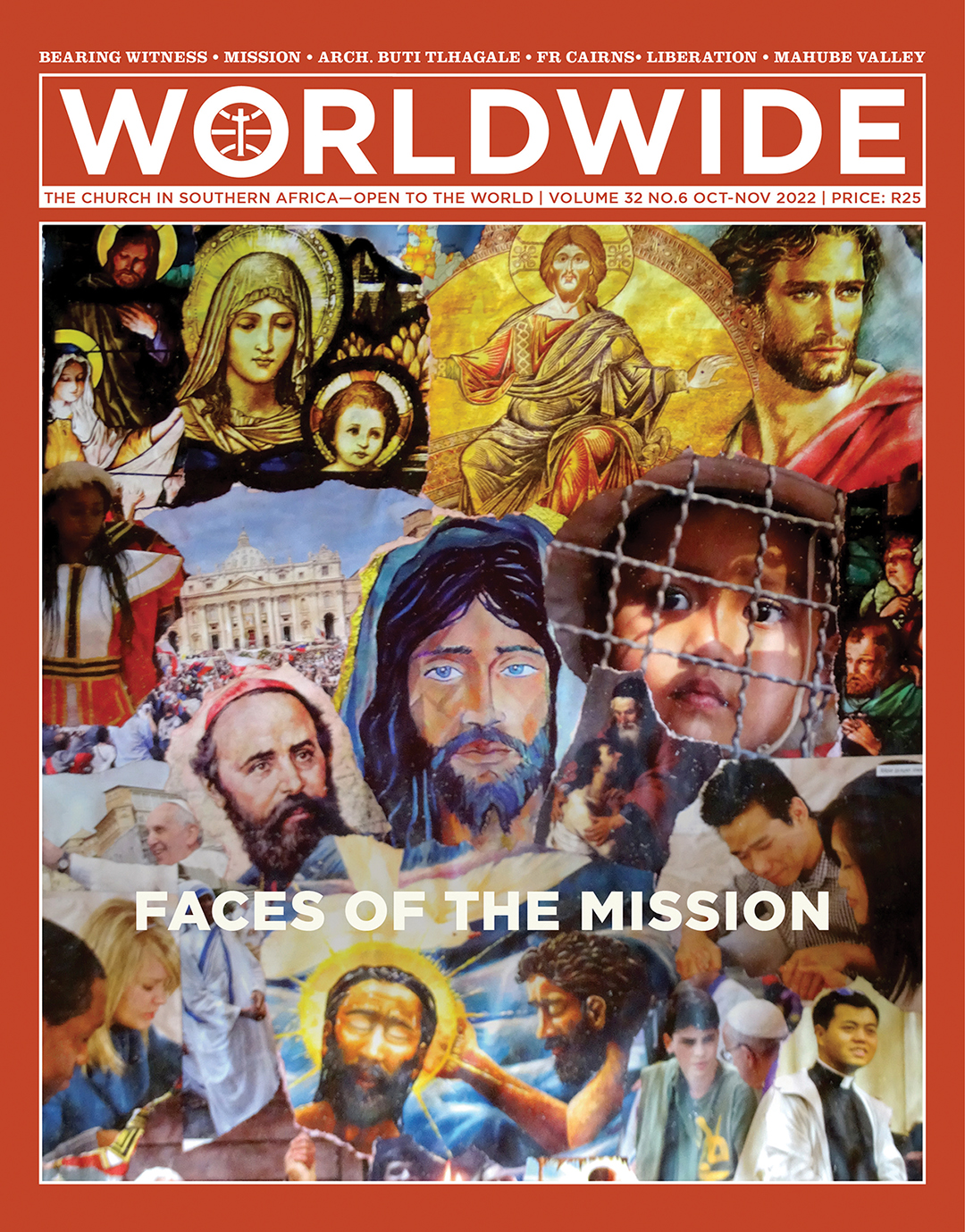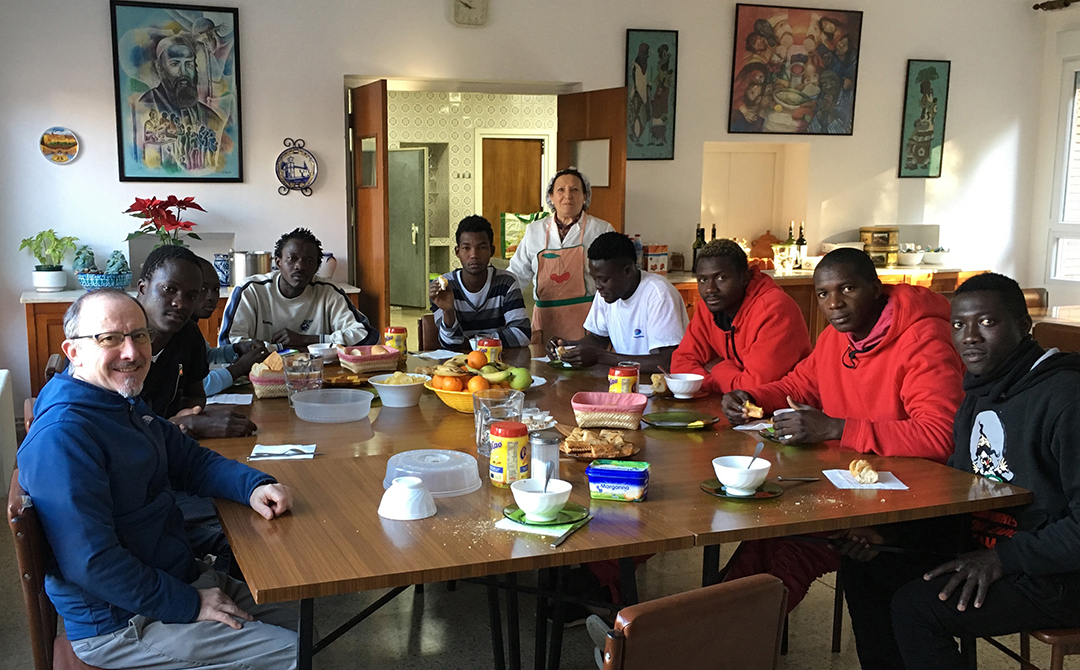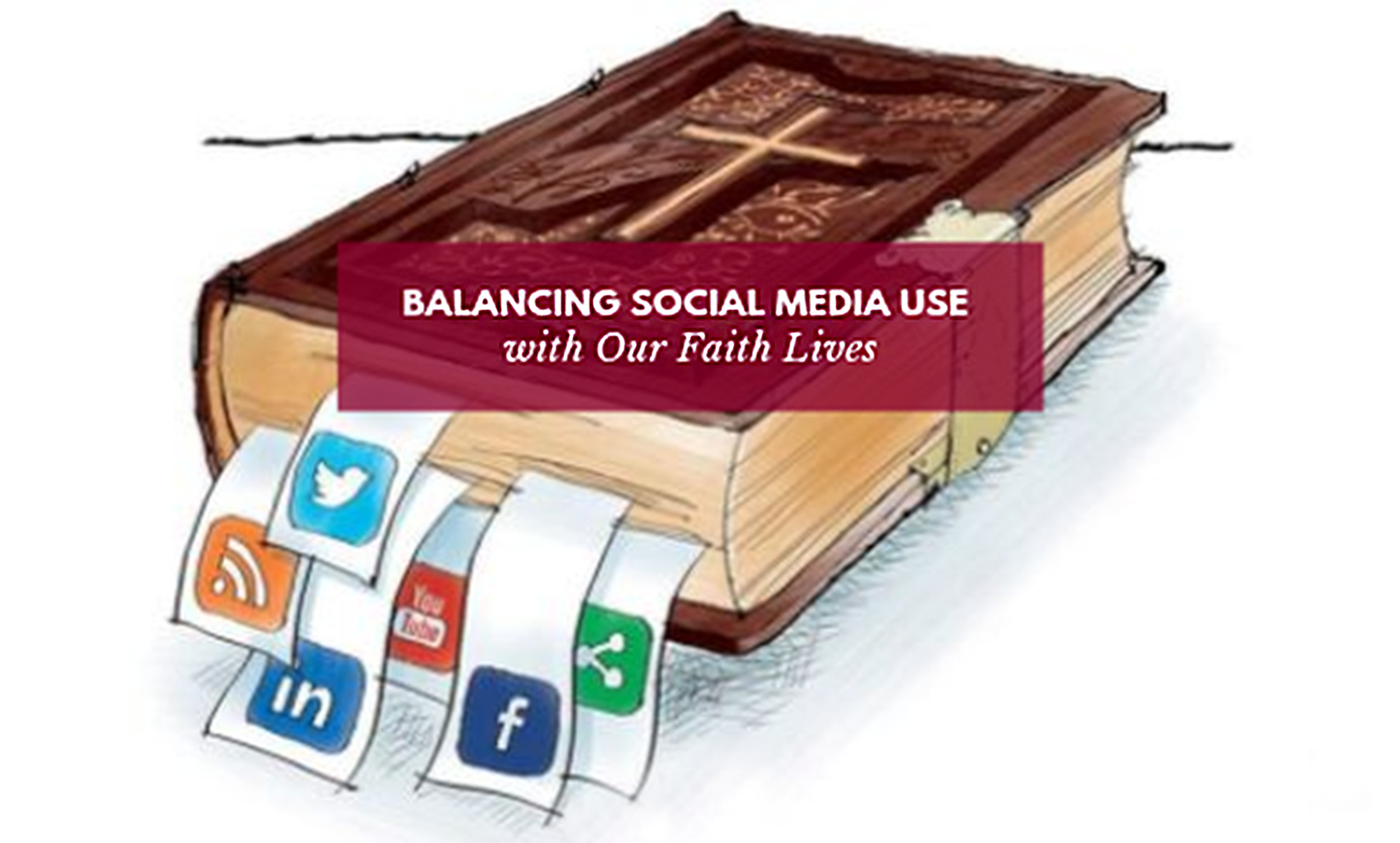SPECIAL REPORT • AFRICAN PERSPECTIVE
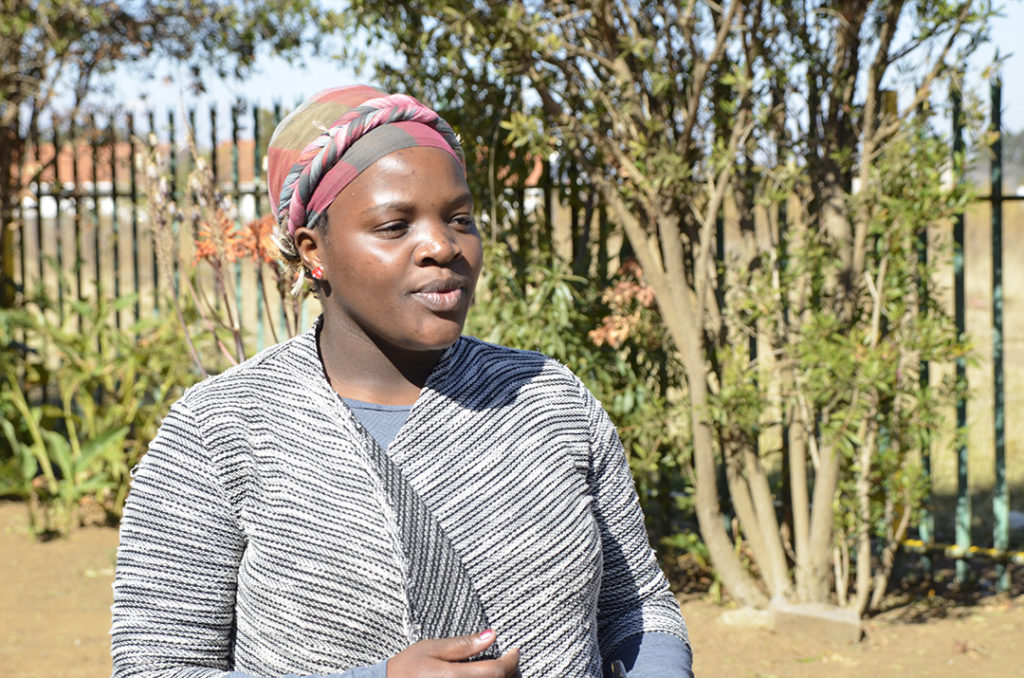
Parish of St Charles Lwanga, Orange Farm, Johannesburg. Credit: Carla Fibla.
Comboni’s charismatic legacy in our mission today
In a challenging globalized world, the charism of St Daniel Comboni, who dedicated his entire life for the regeneration of Africa, can inspire those who are committed to the integral development of peoples
BY Fr John Baptist Keraryo Opargiw, MCCJ | Pietermaritzburg, South Africa
“THE MISSIONARY mandate accompanies us into the Third Millennium and urges us to share the enthusiasm of the very first Christians.”
(Novo Millennio Ineunte, no. 58)
I feel greatly honoured, as a son of Comboni and a son of Africa, so dear to our Father and Founder, to contribute with a short reflection on mission in this issue of Worldwide. I believe that we Comboni missionaries have inherited the mission-oriented charism of St Daniel Comboni and we are striving to faithfully live and share this gift with our brothers and sisters in the diverse socio-political and ecclesial contexts of our world today. This is indeed the task that the Vatican document, Mutuae Relationis outlines for us in very inspiring terms:
“The charism of the founders is revealed as an experience of the Spirit, transmitted to his disciples to be lived, kept, deepened and constantly developed in harmony with the Body of Christ in perpetual growth”
(Mutuae Relationis 11).
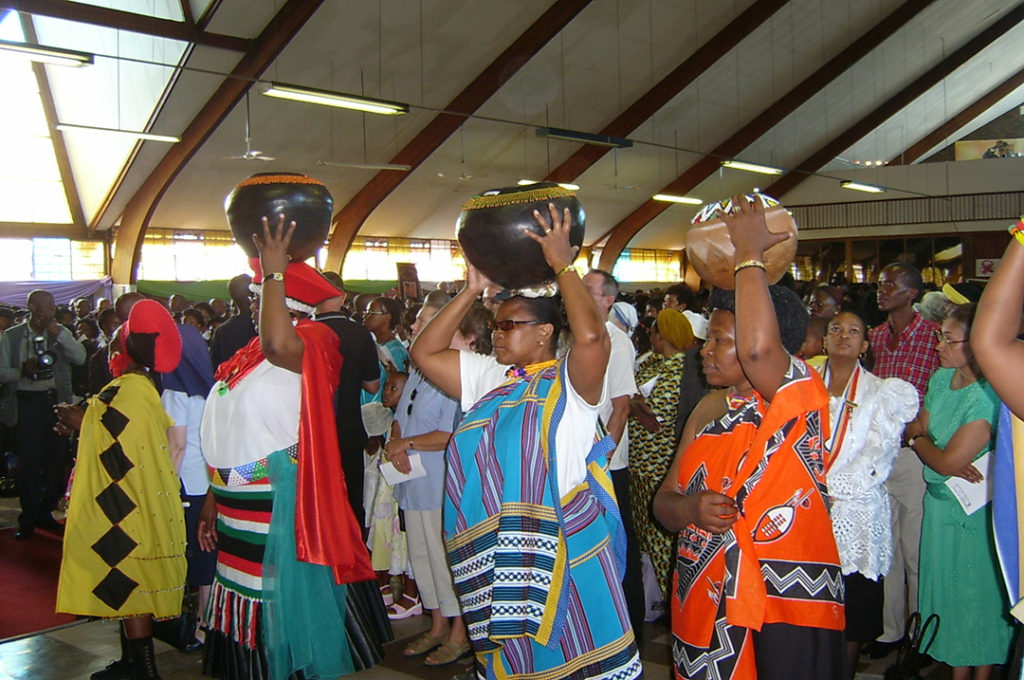
As followers of Christ in the Comboni way, we are called to participate in the transmission of his charism which is a living and dynamic reality, in creative fidelity, and with the capacity to adapt to new ecclesial and socio/cultural situations. The mission belongs first and foremost to God and its source is the very heart of God and of Jesus. There we find the real impetus and motivation for our Comboni missionary outreach today.
God the Missionary (Ex 3: 7)
“I have witnessed the affliction of my people in Egypt and have heard them crying out because of their oppressors. I know what they are suffering and have come down to rescue them from the power of the Egyptians and lead them out from that country into a good and spacious land, a land flowing with milk and honey….”
We see a God who cares and cannot live comfortably in His paradise while His people suffer, but gets involved with the real problems of the people. He commits to do something in their favour. Three missionary verbs are noticeable in this passage:
- To see, to witness, to be aware of.
- To listen, to hear, to feel compassion.
- To act, to do something in response to the cry of others.
Christ the Missionary of the Father
“As Jesus disembarked and saw the vast crowd, His heart was moved to compassion for them, for they were like sheep without a shepherd. And He began to teach them many things.” (Mark 6: 34–42)

Jesus shows His compassion and active concern for the spiritual and material needs of the people who are like sheep without a shepherd, a really scattered people. They are hungry, in a deserted place where the disorienting and insecure night is falling. Whereas the apostles at first shun their responsibility and do not want to get involved because they feel overwhelmed and powerless in front of the hungry crowd, Jesus, Missionary of the Father, feels compassion for the hungry crowd and gets involved by teaching them at some length, thus illumining and giving meaning to their life. Then using the meagre resources the people already had, Jesus seeks the collaboration of the apostles to nourish the needy crowd. It shows that mission is above all,
- compassion;
- becoming aware of the situation of the people and doing something to respond to their needs in a holistic manner;
- believing in people’s resources and promoting them;
- co-responsibility and collaboration with others to transmit the love and compassion of the Father.
Comboni, the missionary of Christ
Comboni saw the misery of the African people and listened to their cry. He committed himself to freeing them by giving his life. Comboni followed the same attitudes of God the Father and His Son Jesus Christ who are actively involved in the affairs of a needy humanity and do something in their favour. Mission means engaging with the fate of the people, feeling part of it, approaching them not as an outsider or a stranger, who looks at others from a distance and from above.
Comboni’s homily in Khartoum on 11 May 1873 shows his passion for Christ and for the Africans:
“I am truly happy, dearest friends, to be back with you again after so many sad events and so many sighs and afflictions. The first love of my youth was for the unhappy Africa and, leaving behind all that was dearest to me in the world, I came, sixteen years ago, to these lands to offer my work for the relief of their age-old sufferings.
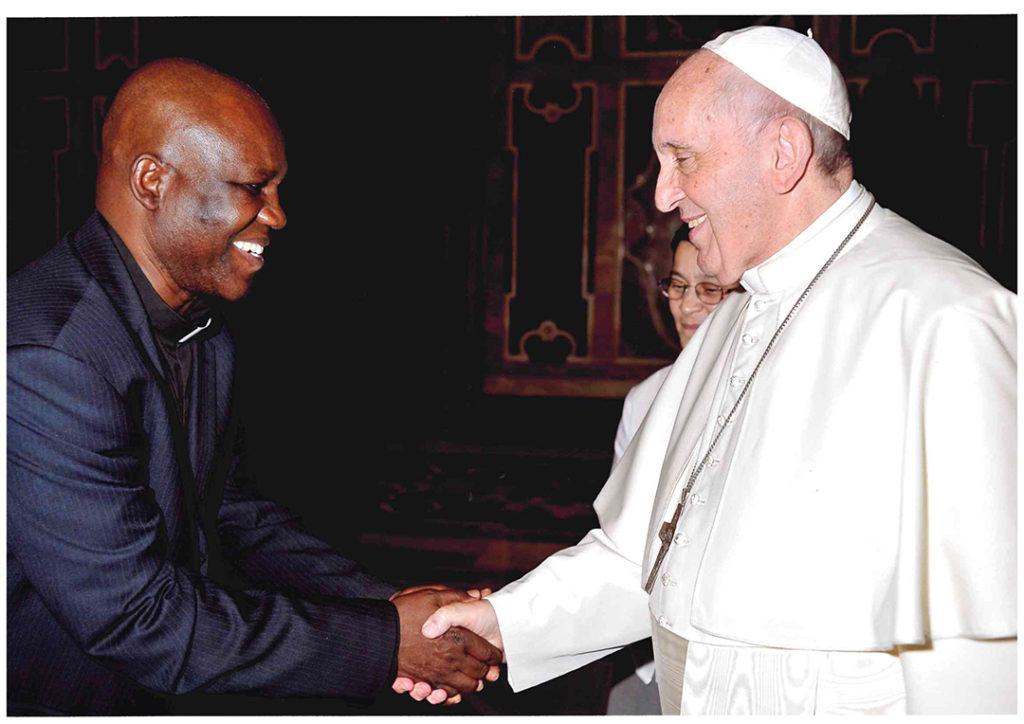
Yes, I am your father, and you are my children and as such I embrace you and press you to my heart. Be assured that in my soul there is a boundless love for all time and for every one of you. I return among you to be always yours, as I am consecrated for your highest good… I intend to make common cause with each one of you, and the happiest of my days will be when I may give my life for you…” (Writings 3156, 3159).
This homily is Comboni’s project of life which does not finish with his own short life, but continues as a project for the Comboni missionaries for all time.
Comboni Missionaries today
In his address to the participants at the XIX General Chapter in Rome on 18 June 2022, Pope Francis said: “The essential trait of the Heart of Christ is mercy, compassion, tenderness. …I think that you are called to bring this witness of God’s style—closeness, compassion and tenderness—in your mission there where you are and where the Spirit will guide you.” With these inspiring words, Pope Francis captured the essence and the motivating factor of our charism as Comboni missionaries.
Global reality check
The reality of our world shows that the beauty, goodness and integral development of our universe and human life have been tarnished by a lot of negativity and challenges such as: abject poverty, inequality, injustices, social and environmental violence; corruption, indifference, intolerance, dictatorships, poor governance, xenophobia and sad situations of mass migrations and refugees. In Africa, the situation is aggravated further by the challenge of the lingering effects of Afro-pessimism and the marginalization of the continent in the present world order. In this context, the Comboni missionaries are called to participate in the mission of God.
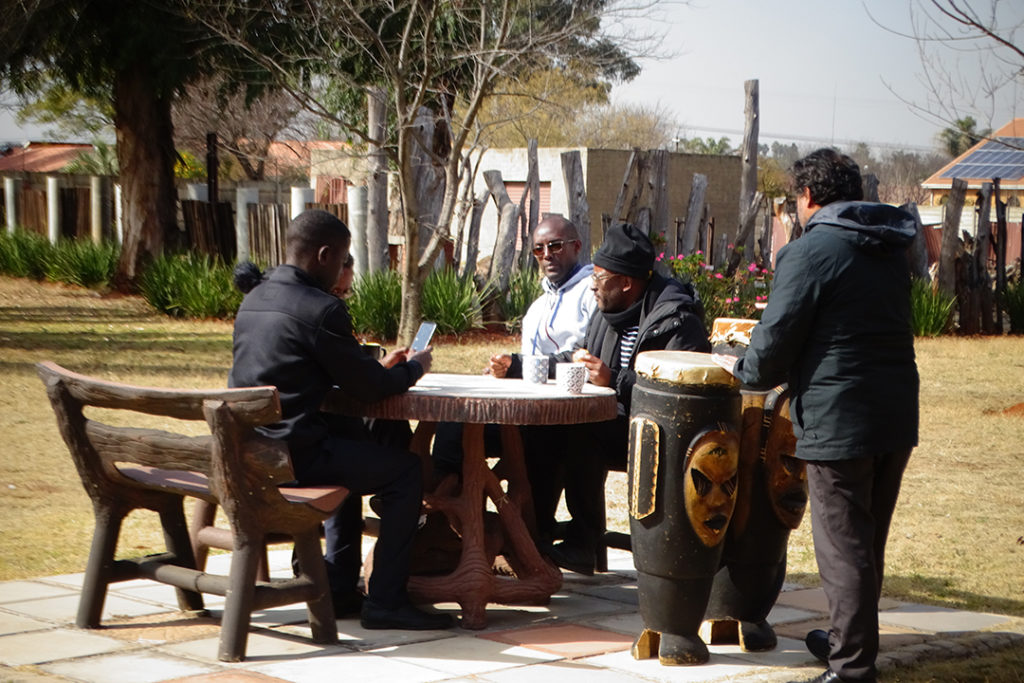
Mission priorities today
Helped by a good analysis, reading the signs of the times and places, and assuming the missionary attitudes of God the Father, of Jesus Christ and of Comboni, we can highlight the following key endeavours of our mission, especially in Africa:
- First evangelization among those who have not yet had a first contact with the Gospel (significant ethnic groups, the peripheries of big cities, ‘frontier’ situations), in order to build adult Christian communities.
- Inculturation remains an area of fundamental priority so that evangelization may put down roots and bear abundant fruit. Our duty here is to be qualified and respectful collaborators with the local Church, having a profound esteem for the local people, their language and culture.
- Formation of pastoral agents (lay, religious and clergy) at all levels, promoting their ministerial roles in view of their active participation in the mission of the Church.
- Social commitment and human development are to be undertaken everywhere as part and parcel of the proclamation of the Gospel and of every missionary activity. Commitment in the field of justice, peace and integrity of creation (JPIC) to ensure a relevant presence of the faithful in the political and economic decision-making processes.
- Commitment in the mass media and social communications to enable the voice of the poor to be heard at all levels in society.
- Ecumenism and interreligious dialogue, especially with Islam and the African traditional religions.
- Pastoral attention to the crisis of mass migrations and refugees offers us a privileged opportunity to serve the poorest and most abandoned of our contemporary society.
An incisive and effective missionary service today
The missionary mandate is indeed as old as Christianity, but at the same time it is still a fresh clarion call to us to “cast out the net into the deep for a catch”, because worldwide mission is still at the threshold. With the numerical decline of Christianity in Europe and the overall shift of Christianity’s centre of gravity to the south of the world, mass migrations from the south to the northern hemisphere and the phenomenon of globalization, a new era of mission has begun.
New challenges and new contexts appear, as we try to remain faithful to the Gospel. Mission is still an urgent work in progress. Thus, what can be the role and place of the Comboni missionaries in this global mission? How do we envisage the participation of others, especially the lay faithful and the youth in this mission?
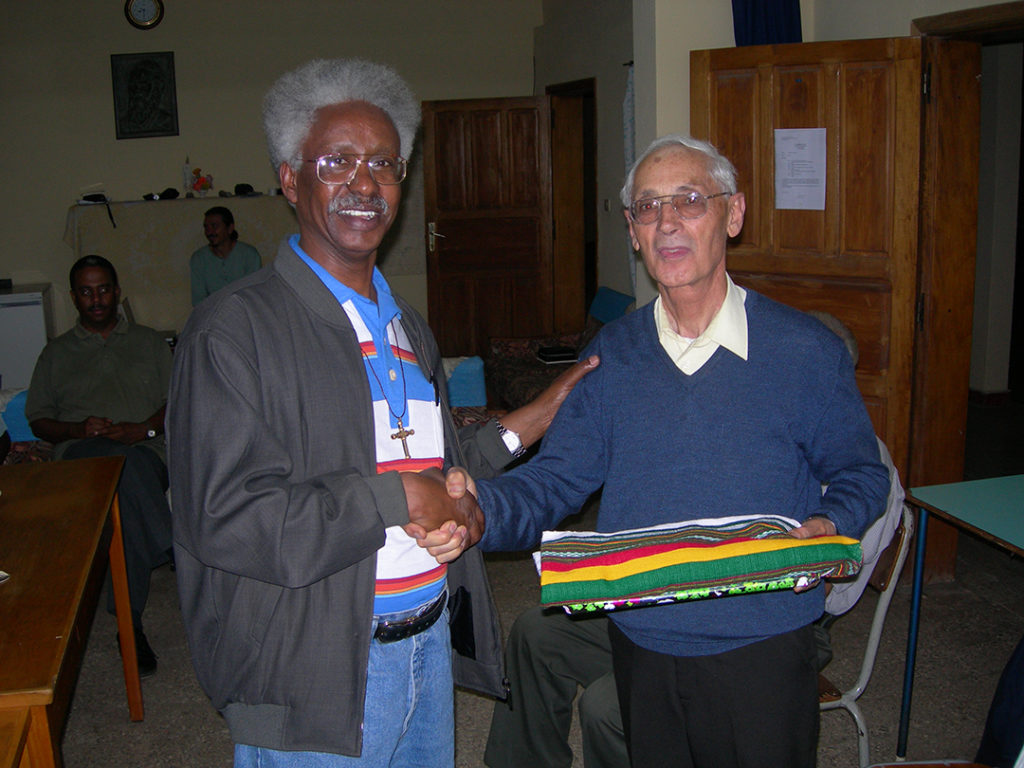
The Comboni charism is not a gift to be guarded jealously or narcissistically by the Combonis, but belongs to the whole missionary Church. Hence the active involvement of all, men and women, young and old, religious, clergy and lay people of whatever nationality, is most welcome. It is also in this sense that Comboni always ascribed to a mission that must be “Catholic, and not just Spanish, French, German or Italian.” (Writings 944).
Mission unto the heart of God
We Comboni missionaries and our collaborators need to re-commit ourselves in a kind of mission close to the people, making common cause with them. Our mission requires to improve the quality of our interpersonal relationships in our communities and with the people. To Descartes’ “Cogito, ergo sum” (I think, therefore I am), Pobee responded by coining the typical African expression, “Cognatus ergo sum” (I am related, therefore I am). The emphasis here is that mission is relationship and not only communication of ideas and values! I envisage a mission done in humility and poverty or sobriety of means in order to be more in touch with the local people, especially the poor and marginalized of our society.
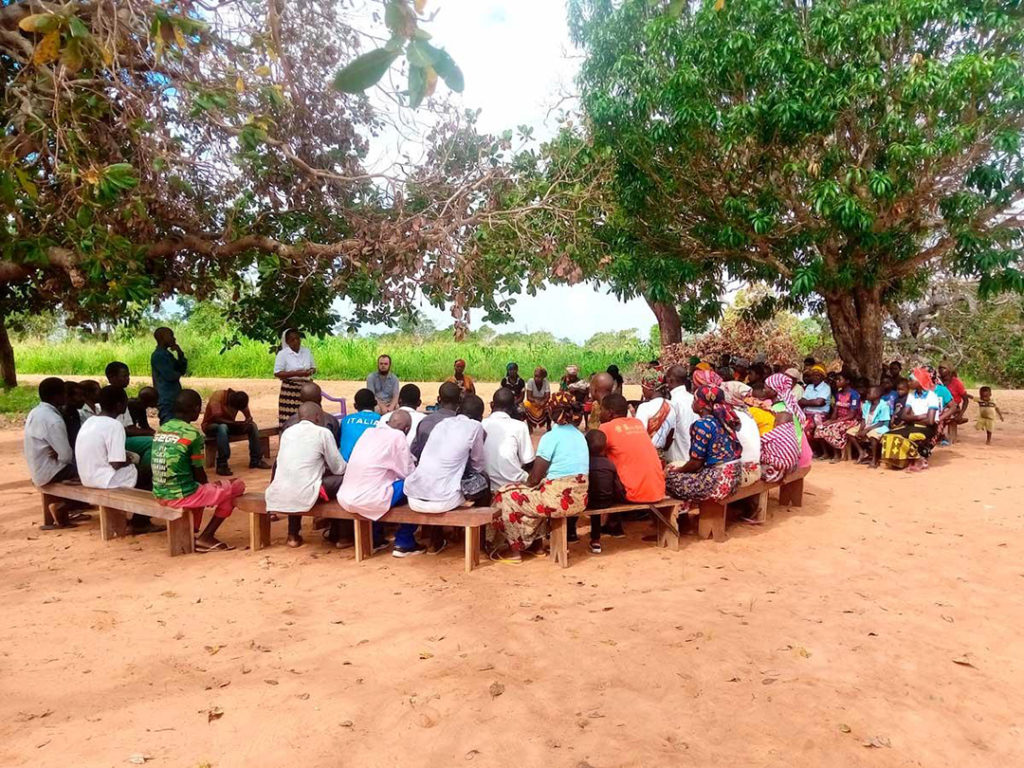
Credit: Comboni.org.
Mission at the service to life
The concept of life which is indeed central to the African worldview and permeates the history of salvation is at the heart of the Christian mission. Jesus Christ came so that we might have life in all its fullness (John 10: 10). Mission is, therefore, participation in God’s lifegiving activities in favour of humanity and the world. This perspective invites us to promote and cultivate all that leads to life in its fullness and to shun all that diminishes it in any form—therefore, the importance of healing of memories and especially of emotions of anxiety, fear, anger and guilt. Humanity is being hurt badly and people are very angry. Consequently, healing must be urgently and holistically addressed in our mission today.
Attitudes of missionary disciples
Constantly, we experience that we evangelize and are evangelized by the people. This implies the need for openness, of listening and learning from others. Local people love and respect the missionaries. They have a sense of faith and they follow us closely, encouraging and accompanying us. Often, the problems and challenges we encounter in our missionary service are due to a certain deafness or indifference on our part to what people are saying and feeling towards us. The fruitful collaboration in mission involves mutual responsibility and accountability vis-à-vis with the local people who are not just objects of evangelization, but indeed subjects and stakeholders of this important enterprise.
Healing must be urgently and holistically addressed in our mission today
All baptized are invited to participate in the various missionary endeavours, each according to one’s God-given talents. The Comboni charism is alive and attractive to be embraced by people of all walks of life in order to contribute to the global mission today. It is now the responsibility of everyone to discover their stance in this missionary scenario.

